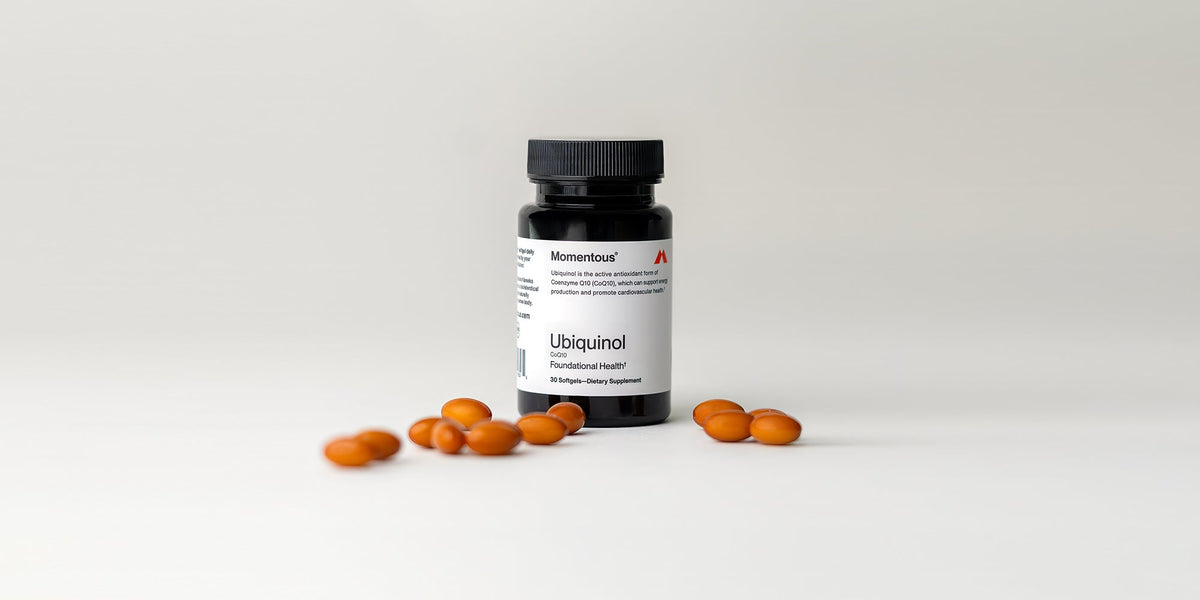
Ubidecarenone vs Ubiquinol: The CoQ10 Debate
|
|
Coenzyme Q10 (CoQ10) is a widely used supplement recognized for supporting energy production, heart health, and cellular vitality. When shopping for CoQ10, you’ll encounter two main forms: ubidecarenone (also known as ubiquinone) and ubiquinol.
Key takeaway:
Ubidecarenone is the oxidized form of CoQ10 that must be converted by your body into the active form.
Ubiquinol is already in its reduced, active state, offering enhanced absorption and effectiveness, especially as you age.
This guide breaks down the science, compares benefits, and helps you determine which form best suits your needs—whether you’re an athlete, seeking heart support, or optimizing energy as you age.
Ubidecarenone is the oxidized, original form of CoQ10 used in supplements for decades.
Plays a key role in mitochondrial energy production, shuttling electrons to generate ATP, the cell’s main energy source. Must be converted into ubiquinol within the body to become active. This process is efficient in healthy, younger individuals but declines with age or certain health conditions.
Typically produced via yeast or bacterial fermentation. More stable and cost-effective than ubiquinol, making it common in standard CoQ10 products.
Supports mitochondrial energy production
Promotes cardiovascular and brain health
Provides antioxidant effects (after conversion to ubiquinol)
May enhance exercise performance and recovery in younger adults
Supplementation has been shown to improve endurance and fatigue resistance in athletes and support heart function in cardiovascular patients.
Ubiquinol is the reduced, active form of CoQ10. It is the form your body directly uses for antioxidant and cellular functions.
Provides direct antioxidant protection and supports efficient energy production, especially in high-demand organs like the heart, muscles, and brain. Conversion from ubiquinone to ubiquinol becomes less efficient with age, making direct supplementation more effective for older adults.
More complex and expensive to manufacture. Only one patented, stabilized version is widely available (Kaneka Ubiquinol®), produced via yeast fermentation.
Superior bioavailability and absorption (up to 8x higher than ubidecarenone)
Direct antioxidant support
Supports cardiovascular, cognitive, and muscular health
May reduce fatigue and enhance recovery, especially in older adults or those under stress
Studies show ubiquinol supplementation increases peak power output in athletes and reduces oxidative stress markers in older adults.
| Feature | Ubidecarenone (Ubiquinone) | Ubiquinol |
|---|---|---|
| Form of CoQ10 | Oxidized (inactive) | Reduced (active) |
| Absorption | Moderate | Superior (up to 8x higher) |
| Conversion in Body | Requires conversion | Ready for immediate use |
| Age Considerations | Best for Adults <40 | Best for Adults >40 |
| Cost | Lower | Higher |
| Recommended Dose | 100-300mg/day | 100-200mg/day |
| Best For | General wellness, younger users | Aging, heart health, high performers |
Both are derived from the same CoQ10 compound.
Essential for energy production and antioxidant support.
Benefit cardiovascular, brain, and muscular function.
Generally well-tolerated with low risk of side effects.
Can improve exercise performance, especially in endurance and high-intensity training.
CoQ10 is considered very safe, with rare, mild side effects such as:
Gastrointestinal discomfort (nausea, diarrhea)
Headache or dizziness
Potential interactions with blood thinners (consult your physician)
Both forms have been studied at doses up to 1200 mg/day without serious adverse effects.
Under 40 and generally healthy? Ubidecarenone is likely sufficient for basic cellular support.
Over 40, low energy, or cardiovascular concerns? Ubiquinol is recommended for superior absorption and effectiveness.
Ready to experience the benefits?
Choose a high-quality ubiquinol supplement for maximum support in energy, heart health, and performance.
Yes. As you age, your body’s ability to convert ubidecarenone to ubiquinol declines, making ubiquinol the preferred choice for adults 40+ or those with heart conditions.
Yes. Both forms may interact with blood thinners like warfarin. Always consult your healthcare provider before starting supplementation.
For general health: 100 mg/day. For enhanced energy or heart health: up to 200 mg/day. Follow label instructions or consult a healthcare professional.
Ubidecarenone is best for younger, healthy adults.
Ubiquinol is optimal for aging individuals, athletes, or those needing superior bioavailability.